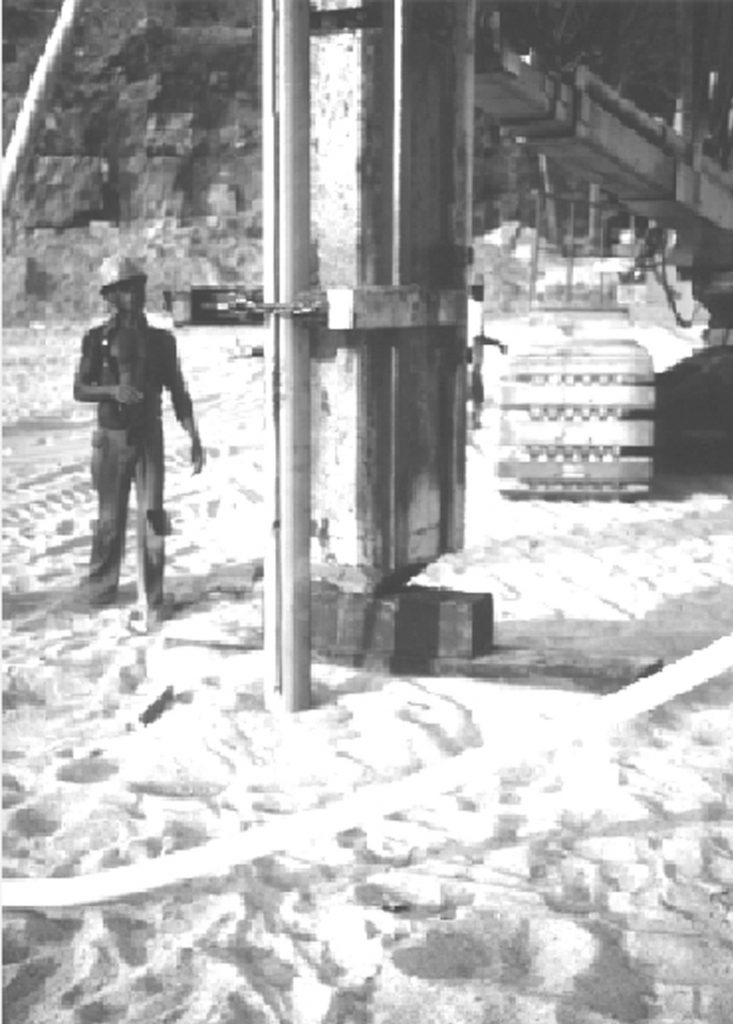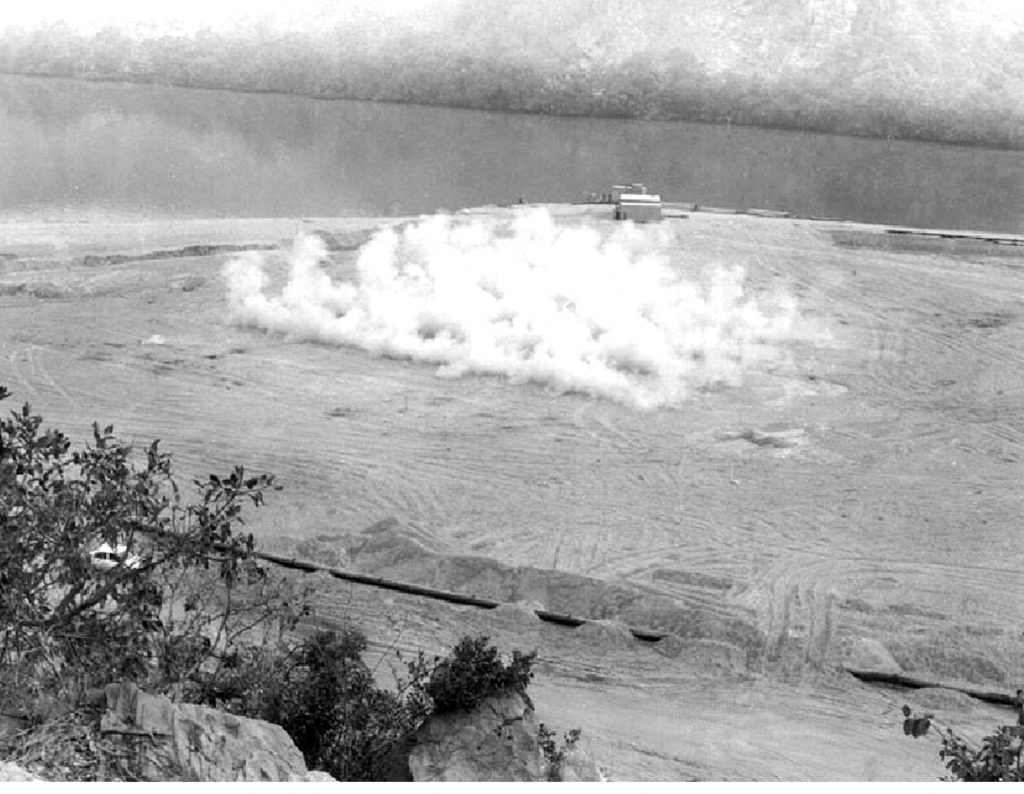

<p><p><figure id='attachment_1393' style='max-width:1265px' class='caption alignnone'><img class="wp-image-1393 size-full" src="https://www.geoinstitute.org/sites/default/files/geotech-tools-uploads/…; alt="Photograph of surface expression of detonation of charges for deep densification of sand at depth." width="1265" height="981" /><figcaption class='caption-text'> Surface expression of detonation of many charges for deep densification of loose sand at depth.(Photograph from Montreal Engineering Co. Jebba Dam project file, courtesy of AMEC)</figcaption></figure></p><p>Detonation of explosives induces liquefaction of the soils, which consolidate to a denser, more stable configuration due to the vibrations and force from the blast and gravity. Blast densification reduces effects of long-term settlement and improves the foundation soil strength. Advantages include low cost, rapid method, large effective depth and wide applications under variety of climates. This technique is applicable to new embankment and roadway construction.</p><p>
